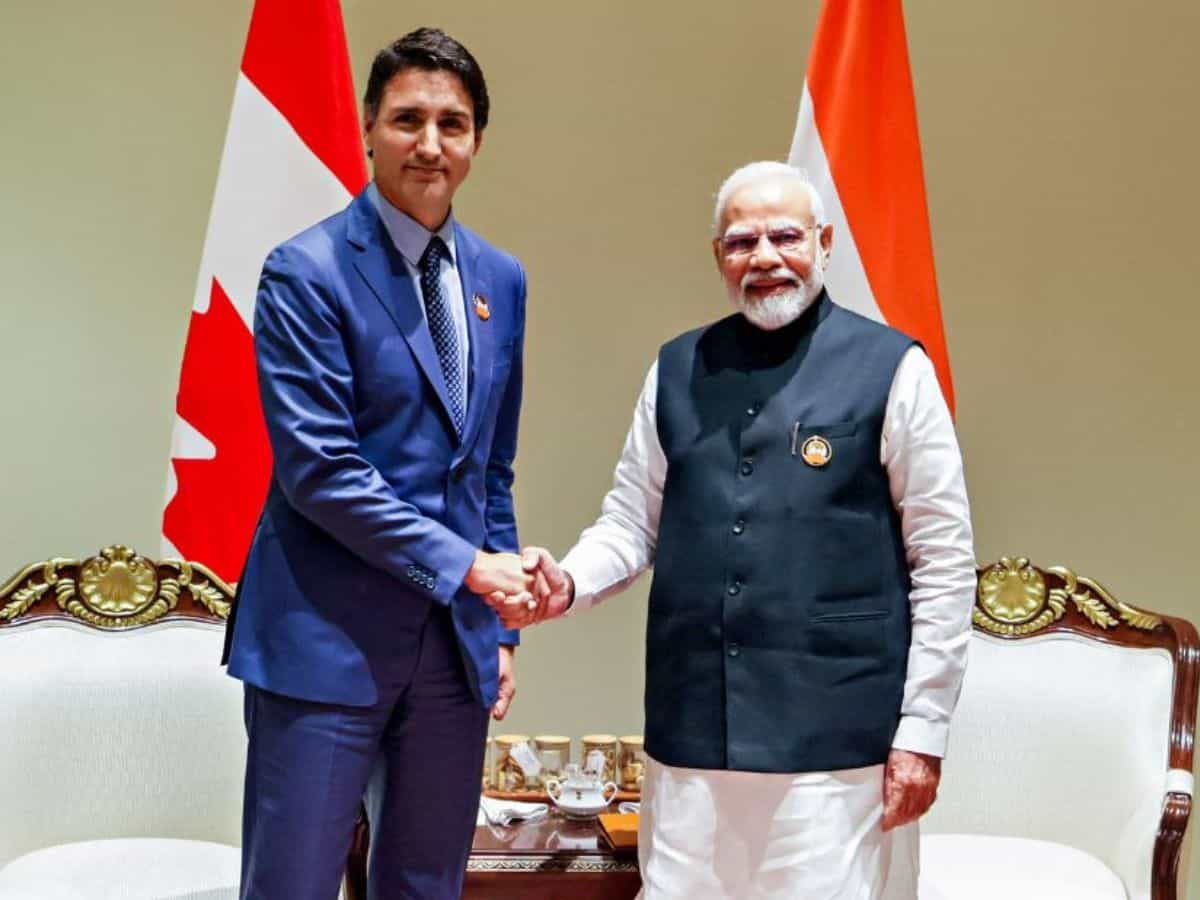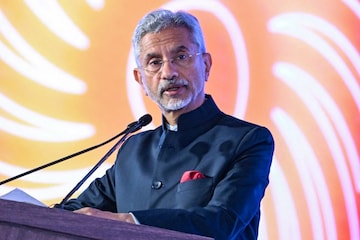India-Canada relations going through difficult phase: EAM Jaishankar

India-Canada relations going through difficult phase: EAM Jaishankar
The situation described in your statement pertains to diplomatic tensions between India and Canada as of my last knowledge update in September 2021. However, I do not have information about any developments or specific incidents beyond that date.
India was concerned about alleged interference by Canadian personnel in its affairs, and this led to India invoking a provision of parity in Canada’s diplomatic presence. Additionally, the Indian External Affairs Minister, S Jaishankar, mentioned that the resumption of visa issuance to Canadians would depend on the safety of Indian diplomats in Canada.

The strain in India-Canada relations may have been exacerbated by Canadian Prime Minister Justin Trudeau’s previous allegations of the potential involvement of Indian agents in the killing of Khalistani separatist Hardeep Singh Nijjar. It’s important to note that the relationship between countries can evolve over time, and diplomatic tensions can change based on various factors and developments. For the most up-to-date information on the status of India-Canada relations, I would recommend referring to news sources or official statements from both governments.

In response to allegations made by Canadian Prime Minister Justin Trudeau and concerns over the safety of Indian diplomats in Canada, India took several diplomatic actions. First, India decided to temporarily suspend the issuance of visas to Canadian citizens. This move is significant as visa issuance plays a crucial role in facilitating various aspects of diplomatic relations, such as business, cultural exchanges, and people-to-people interactions. By suspending this process, India conveyed its dissatisfaction with recent developments in the bilateral relationship, particularly the accusations made by Trudeau.
Furthermore, India requested that the Canadian government downsize its diplomatic presence in India. This is a strong diplomatic measure and is often employed to indicate displeasure or to signal a reduction in diplomatic relations between two countries. It reflects India’s stance that it was not content with the current state of bilateral relations and sought a de-escalation in diplomatic engagements as a response to the ongoing tensions.
External Affairs Minister S Jaishankar stated that India would consider resuming the issuance of visas to Canadians if it saw improvements in the safety and security of Indian diplomats in Canada. This statement underscores that the primary concern for India was the safety of its diplomatic personnel in Canada. By linking the resumption of visa issuance to tangible progress in addressing these security concerns, India made it clear that it expects specific actions to be taken before relations can return to normal.
In the realm of international diplomacy, such actions are a reflection of the intricate dynamics and sensitivities of international relations. They are often utilized to convey concerns and seek resolutions for perceived issues. While they may create short-term strains in relations, they can also serve as starting points for negotiations and discussions to address the underlying concerns and ultimately improve bilateral ties. The future course of India-Canada relations and the status of these diplomatic measures will depend on the actions and responses of both countries in the coming months and years.

The downsizing of Canada’s diplomatic presence in India, as explained by External Affairs Minister S Jaishankar, is based on the principle of diplomatic parity provided for in the Vienna Convention on Diplomatic Relations. The Vienna Convention is a key international treaty that outlines the rules and guidelines governing diplomatic relations between countries. Under this convention, countries are expected to maintain a balance in their diplomatic missions, reflecting the principle of reciprocity. India invoked the concept of diplomatic parity due to its concerns about what it perceived as continuous interference in its internal affairs by Canadian personnel.
As a response to these concerns and diplomatic tensions, Canada withdrew 41 of its diplomats from India. Canadian Foreign Minister Melanie Joly, in announcing the return of these diplomats, characterized India’s actions as “contrary to international law” and in violation of the Vienna Convention on diplomatic relations. India, however, rejected these charges, emphasizing that it acted within the framework of the Vienna Convention and in response to its concerns about diplomatic interference.
External Affairs Minister Jaishankar acknowledged that the current state of relations between India and Canada is challenging. He also pointed out that India has specific issues with certain segments of Canadian politics. This statement indicates that the strained relations are not only about specific incidents but also related to broader political dynamics and policy positions, which have contributed to the difficulties in the bilateral relationship. The outcome and future course of India-Canada relations will depend on the resolution of these issues and the willingness of both countries to engage in diplomatic discussions and negotiations to address their concerns.




